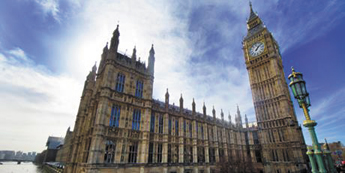PR is the way forward, we need a fairer voting system
Friday, 11th December 2020

‘People get disillusioned by results not reflecting votes’
• IN 2018 Labour won all but one of the seats on Islington Council (98 per cent).
Now you might expect me, as a retired Labour councillor, to like this but I am concerned because we only actually received 61 per cent of the votes cast and it meant thousands of people did not get representation.
If seats were in proportion to votes, Labour would still have an overall majority with 29 seats, the Greens would have eight seats, the Liberal Democratss six and the Conservatives five. This is because the FPTP first-past-the-post system exaggerates winners and losers.
Back in 2002 the Lib Dems had 38 seats (79 per cent) on 46 per cent of the vote, Labour had 10 seats (21 per cent) on 36 per cent of the vote and, again, thousands of votes cast for the Greens and the Tories were wasted as they didn’t win any seats.
Looking at seats it was no wonder that the Lib Dems thought they were on the way to wipe out Labour; but looking at the votes cast shows things were not as clear cut.
In many English and Welsh councils one party or another has all, or almost all, of the seats and other parties are under-represented or not there at all as a result of FPTP.
Not so in Scotland and Northern Ireland where proportional systems are used, and the Welsh Senned (parliament) has just passed a law to allow Welsh councils to change from FPTP if they want to do so.
In parliament, too, seats don’t reflect votes cast. The 2019 general election saw the Tories win 56 per cent of the seats and 100 per cent of the power on just 44 per cent of the vote.
Stranger things sometimes happen; in 1983 the Tories won more seats on fewer votes than previously and in 1951 and 1974 the winning party got fewer votes than the runner-ups! The same thing happened in the 2016 US presidential election.
People get disillusioned by results not reflecting votes. They feel alienated from politics and stop voting.
FPTP also has an impact on the parties. More and more effort is put into campaigning in marginal seats and finding “swing” voters. Voters in a party’s own safe seats are taken for granted and in the safe seats of other parties they are written off.
How to change this? I’m a member of Make Votes Matter and their local councillors network. MVM is a non-party campaigning group for PR, proportional representation, and almost every political party supports us except Labour and the Tories.
We are trying to change Labour’s position and 112 Constituency Labour Parties, including Islington North and Islington South and Finsbury, now support PR and the number is growing all the time.
MVM does not advocate a particular voting system but has come up with 10 principles which a good voting system would have (see the MVM website).
Opinion polls suggest that three-quarters of Labour members and Labour supporters want PR. Newer assemblies in the UK including the London, Scottish, Welsh and Northern Irish bodies all use PR.
More and more countries have changed to PR. In Europe only the UK and Belarus use FPTP. What’s stopping us from changing?
BARRY EDWARDS,
N7